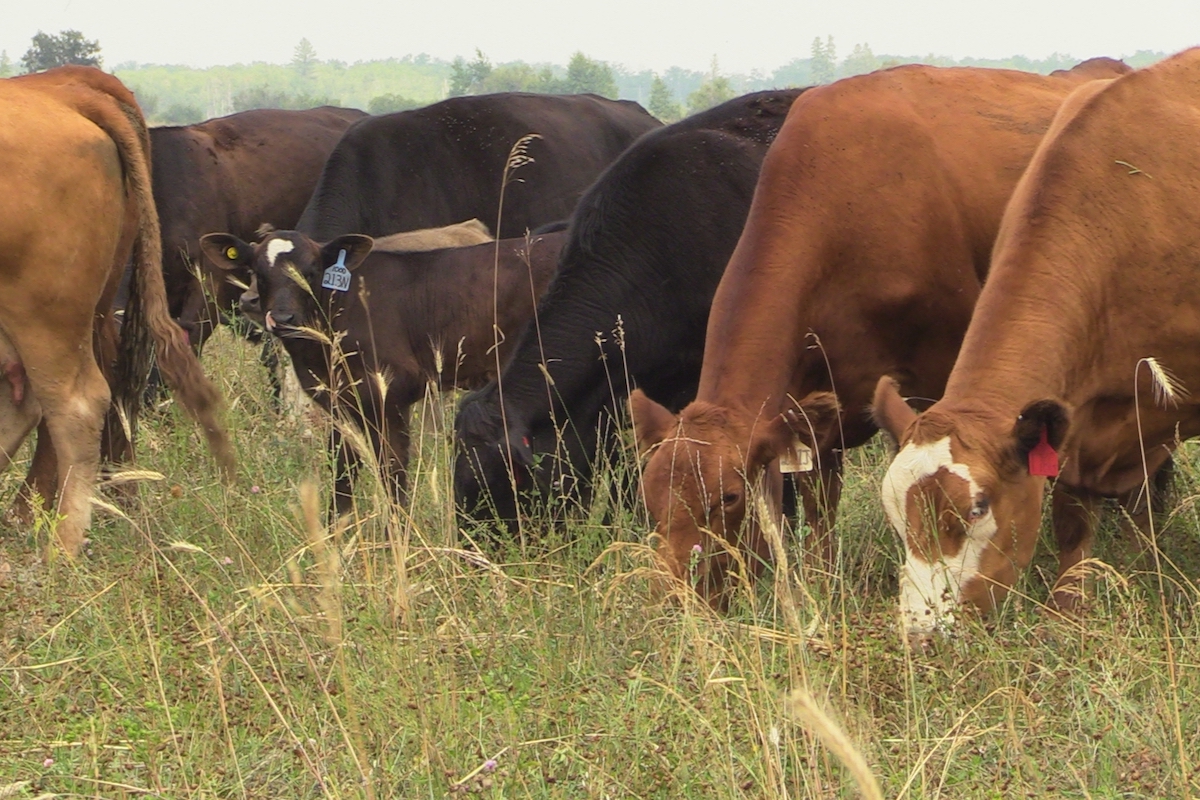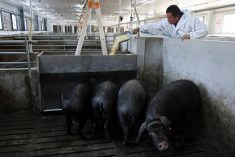Keeping a newly emerging swine disease out of Canada will require a team effort, according to the Manitoba Pork Council’s point man on the issue.
That means truckers, gathering yards and farmers need to work together to make sure porcine epidemic diarrhea (PED), a virus spread by fecal matter, isn’t given a free ride into Canada’s hog herd.
“We’re a team. If you want to be part of the team, you’ve got to do what’s right,” said Miles Beaudin, the MPC’s manager of quality assurance and labour.
Read Also

Beef industry weighs in on AAFC research cuts
The Canadian Cattle Association and Beef Cattle Research Council said cuts to federal research centres and programs will have long-term debilitating consequences for the beef industry.
PED, first confirmed in the U.S. on May 17, has been detected at 103 sites in 11 U.S. states as of Wednesday, according to the Reuters news service.
The virus, which first appeared in England in 1971 and has since been found in other countries in Europe and Asia, has not yet been reported in Canada. According to the Canadian Food Inspection Agency, infected animals do not pose a human health or food safety risk.
To boost awareness of the risk that it might spread, the Canadian Pork Council and Canadian Swine Health Board (CSHB) issued a statement following an emergency conference call last week that urged the industry to be vigilant and step up on-farm biosecurity programs.
When a swine herd is infected, 70-100 per cent of newborn piglets typically die.
Dr. Glenn Duizer, a provincial animal health veterinarian in Winnipeg, said the symptoms of PED resemble transmissible gastroenteritis (TGE) because the two pathogens belong to the same family of viruses.
“Tell them the risks”
PED, as an emerging swine disease, is not yet reportable. However, because TGE is already a provincially reportable disease, vets in Manitoba are required to submit samples in all suspected cases to government officials.
Due to the devastating nature of the disease once it hits a “naive” herd, or one with no prior immunity, Duizer is confident that if it does infect a herd, it “won’t go unnoticed.”
The Manitoba Pork Council last week strongly encouraged livestock transporters and assembly yards to take all necessary steps to prevent the entry of PED into Canada.
Last year, swine dysentery broke out in U.S. herds and made its way into Canada. Duizer confirmed that PED is a totally different disease and there is currently no cure.
Infected animals that survive a PED infection become immune to the virus, however, it is not believed to be lifelong, he said.
“In some of the Asian countries they have seen herds get infected again two or three years after they experienced it the first time,” said Duizer.
Newborn piglets under four weeks of age are at the greatest risk, he said. Sows and feeder pigs suffer much milder symptoms and little, if any, mortality.
Beaudin urged truckers who handle swine to strictly follow the existing protocols for effective cleaning and disinfection of trucks.
“I can’t enforce or make things absolute, but truckers and gathering yards need to talk to farmers and tell them what the risks are in using their transportation or going to the gathering yard,” he said.
PED can be spread by contaminated footwear, and anyone returning from an infected area should ensure they follow effective biosecurity protocols, the CSHB said in a release.
Any Canadian visitors taking part in World Pork Expo this week should be aware of this fact, the board added.
— Daniel Winters, a reporter for the Manitoba Co-operator at Oak Lake, Man., will have more coverage on PED in the Co-operator’s June 13 edition.
Related story:
U.S. pork industry hunts for hog diarrhea virus, May 28, 2013















